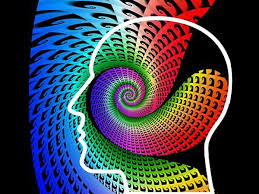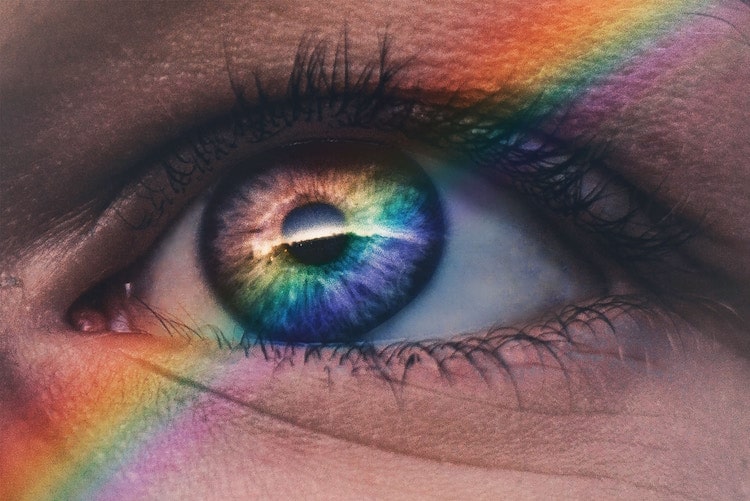Synesthesia is a rare neurological condition that causes people to experience the world in a unique way. Colors, sounds, and even numbers can be perceived differently by someone with synesthesia. This disorder often makes life more interesting for those who have it, but it can also be quite confusing at times. In this blog post, we will discuss everything you need to know about synesthesia disorder!
Contents
- 1 What Is Synesthesia Disorder?
- 2 What Are The Signs Of Synesthesia Disorder?
- 3 What Are The Causes Of Synesthesia Disorder?
- 4 Are There Any Benefits to Having Synesthesia Disorder?
- 5 When To Get Help?
- 6 Diagnosing The Disorder
- 7 Treatment For Synesthesia Disorder
- 8 People Outlook
- 9 Conclusion
- 10 A Word From Therapy Mantra
What Is Synesthesia Disorder?
 Synesthesia disorder is a neurological condition in which two or more senses are coupled. Those people with this disorder are often known as “synesthetes.” There are different types of synesthesia, but the most common form is when people see colors when they hear certain tones or words.
Synesthesia disorder is a neurological condition in which two or more senses are coupled. Those people with this disorder are often known as “synesthetes.” There are different types of synesthesia, but the most common form is when people see colors when they hear certain tones or words.
Synesthesia is considered a “cognitive phenomenon” because it involves the way information is processed by the brain. It is thought that synesthetes have more neural connections between the areas of their brains that process information from different senses than those without the condition.
The word synesthesia comes from the Greek words “syn,” meaning “together,” and “esthesia,” meaning “sensation.” Synesthetes have a heightened awareness of their surroundings and are often able to recall details that others might miss.
While synesthesia is considered a disorder, it is not generally considered a harmful condition. In fact, many people with synesthesia find that it enhances their life experiences. However, the experiences and conditions vary from person to person, so it’s important to be aware of how synesthesia might affect you or your loved ones.
What Are The Signs Of Synesthesia Disorder?
The signs and symptoms of synesthesia can vary from person to person. However, there are some common symptoms that are associated with the condition. These include:
- experiencing colors when hearing certain sounds.
- seeing shapes when tasting certain flavors.
- associating numbers or letters with specific colors.
- having a strong dislike for certain tastes or smells because of the colors they evoke.
- sensing emotions in response to specific colors or patterns
- feeling as though you are touching textures when looking at certain pictures
People with synesthesia often have a hard time distinguishing between real memories and those that are imaginary. This is because synesthesia can cause people to create very vivid mental images.
For example, if someone with synesthesia hears a song on the radio, they may “see” the colors associated with the music in their mind.
Synesthesia disorder is a condition that affects the senses. People with this condition experience unusual sensations when exposed to certain stimuli. The disorder can cause people to create very vivid mental images. Sometimes, it seems difficult to handle.
What Are The Causes Of Synesthesia Disorder?
 The cause of synesthesia is currently unknown, but there are some theories as to what might trigger the condition.
The cause of synesthesia is currently unknown, but there are some theories as to what might trigger the condition.
- One theory suggests that it could be genetic and passed down from family members. And, genetic disorder or disease has been linked to synesthesia in some cases.
- It’s also possible that the condition is related to how the brain develops during fetal development or early childhood.
- Damage to certain areas of the brain has been associated with triggering synesthesia as well.
- Other potential causes include drug use, seizures, and migraines. These causes can result in changes to the brain that might lead to synesthesia.
- It’s also possible that a traumatic event or prolonged exposure to certain drugs or chemicals could trigger the condition.
In fact, the other causes may be due to changes in the brain that are a result of synesthesia. However, the disorder requires more research to determine the root cause. Because of such, the cause of synesthesia disorder is still unknown.
More often, the research mostly focused on the genetic and neurological causes of synesthesia. Each sense is processed in a different area of the brain. But with synesthesia, there seems to be a “cross-wiring” of sorts between the senses.
Are There Any Benefits to Having Synesthesia Disorder?
 Yes, there are benefits to having synesthesia disorder. Such as;
Yes, there are benefits to having synesthesia disorder. Such as;
- One benefit is that people with synesthesia tend to be very creative.
- They are also good at brainstorming and coming up with new ideas.
- People with synesthesia often have a very good memory.
- Can remember things that they have seen or heard in great detail.
- Finally, people with synesthesia often score higher than average on IQ tests and other intelligence tests.
So if you or someone you know has synesthesia, don’t worry! There are actually some advantages to having this condition. And who knows, maybe one day scientists will find even more benefits of being a synesthete.
In fact, some researchers believe that synesthesia may be linked to higher intelligence and creativity. So if you have synesthesia, consider yourself lucky! You might just be a genius.
However, the benefits of synesthesia are still being studied, and more research needs to be done in order to say for sure what the advantages of this condition are. But even if there turn out to be no benefits, it’s still a pretty cool disorder to have. Either way, we should all celebrate our differences and embrace the fact that synesthetes just see the world differently than the rest of us. And that’s okay!
When To Get Help?
Despite the benefits, some people with synesthesia say they experience, the condition can still be disruptive. If you have synesthesia and it’s impacting your life in a negative way, it might be time to seek professional help.
So, let’s discuss those negative impacts that voice the need for help.
- Synesthesia can make it difficult to concentrate. If you have trouble focusing on work or school, it might be because your brain is processing too much information at once. This can lead to anxiety and stress.
- It can also interfere with sleep. The constant flow of information can make it hard to shut down at night and get the rest you need.
- And, some people with synesthesia report feeling isolated and alone because they feel like no one else experiences the world the way they do.
- There is sometimes, a feeling of overwhelm. Because the senses are constantly being bombarded with information.
- People with this disorder find difficulty in multi-tasking. It happens because they are trying to process too much information at one time.
- In fact, the feeling of overstimulation is one of the most common complaints among people with synesthesia.
If you identify with any of these negative impacts, it might be time to seek help from a professional. Professional help can you manage your symptoms and make lifestyle changes to improve your quality of life.
“Don’t suffer in silence – reach out for help today.”
Diagnosing The Disorder
When you identify that you need help with synesthesia. Then, it is time to speak with a medical professional. And for that, you need a diagnosis. The first step is to find a mental health specialist that you trust.
Some of the questions that they will ask you may include:
- If you see colors when you hear certain words?
- Do you taste foods when you see them?
- Do you smell odors when you touch certain textures?
- If you may feel a sense of touch when you see light?
After the specialist has asked you questions, they will give you a physical exam. This is to rule out any other potential causes for your symptoms. Once they have done that, they will most likely give you a psychological evaluation.
There are no specific tests for the disorder, so your doctor will likely ask about your symptoms and how they affect your daily life.
- They may also ask if there is a family history of the disorder.
- You may be referred to a neurologist or psychiatrist for further evaluation.
- These specialists will ask about your symptoms and may administer some tests to rule out other conditions.
With this diagnosis and evaluations, you and your doctor can come up with a treatment plan that works for you. For that matter, it is necessary and the primary step to get rid of the synesthesia disorder. If you find it difficult to deal with.
Treatment For Synesthesia Disorder
 The treatment is very important to know about synesthesia disorder. And, this treatment usually involves the use of medications, therapies, and self-care techniques. It is important to get treatment for this disorder. And, do not leave it unnoticed. Otherwise, it would be difficult to manage the symptoms and get back to your normal life.
The treatment is very important to know about synesthesia disorder. And, this treatment usually involves the use of medications, therapies, and self-care techniques. It is important to get treatment for this disorder. And, do not leave it unnoticed. Otherwise, it would be difficult to manage the symptoms and get back to your normal life.
Before, synesthesia was considered a rare condition. But, now it is thought to be more common than previously believed. It is important to get the proper diagnosis and treatment for this disorder. If you or someone you know has synesthesia, be sure to talk to a doctor about it.
Medications
Medication is something that a doctor may prescribe to help manage the symptoms of synesthesia disorder. However, this is the case for only a small percentage of people with synesthesia disorder.
Because doctors don’t know the exact cause of synesthesia disorder, they can only treat the symptoms. So, if you have synesthesia disorder and are seeking medication, be sure to talk to your doctor about your options. Some of the medications, they usually prescribe for synesthesia disorder, include:
- Antidepressants
- Mood stabilizers
- Anti-anxiety medications
Therapies
There are different types of therapies that can help people with synesthesia disorder. In fact, therapies are prescribed as the main form of treatment for synesthesia disorder.
The type of therapy that’s prescribed depends on the severity of the symptoms. But, some of the most common types of therapies used to treat synesthesia disorder include:
- Cognitive-behavioral therapy – This therapy often works through the process of identifying and changing the negative thought patterns that may be causing synesthesia disorder.
- Exposure therapy – This therapy helps people with synesthesia disorder by slowly exposing them to the things they fear in a safe and controlled environment.
- Exposure therapy – In this, therapy people with synesthesia disorder are exposed to the things they’re afraid of in a controlled environment. This helps them to confront their fears and learn how to cope with them.
- Family therapy – It is also important to involve the family in the therapy process. This is because family support is essential for people with synesthesia disorder.
- Support groups – There are also support groups available for people with synesthesia disorder. These groups provide a safe and supportive environment where people can share their experiences and feelings.
Self-Care Techniques
 In addition to medication and therapy, there are a number of self-care techniques that can help people with synesthesia disorder. Some of these self-care techniques include:
In addition to medication and therapy, there are a number of self-care techniques that can help people with synesthesia disorder. Some of these self-care techniques include:
- Getting regular exercise – Exercise in many ways helps to improve mental health. So, it can be beneficial for people with synesthesia disorder.
- Eating a healthy diet – Eating a healthy diet helps to improve overall physical and mental health.
- Getting enough sleep – Getting enough sleep is important for everyone, but it’s especially important for people with synesthesia disorder.
- Practicing relaxation techniques – Relaxation techniques such as yoga, meditation, and deep breathing can help to reduce stress and anxiety levels.
- Avoiding triggers – People with synesthesia disorder should avoid things that trigger their symptoms. If you’re not sure what your triggers are, talk to your doctor or therapist.
All these treatment options are available for synesthesia disorder and you can choose according to what suits you the best. But, it is always important to talk to your doctor before starting any treatment.
Moreover, some people with synesthesia disorder don’t need any treatment at all. So, if you think you might have synesthesia disorder, be sure to talk to your doctor about it.
People Outlook
 Synesthesia is a neurological condition in which two or more senses are connected. For example, some people with synesthesia might taste colors or smell shapes. It’s a rare condition, affecting less than one percent of the population. Despite its rarity, synesthesia has been well-documented throughout history and across cultures.
Synesthesia is a neurological condition in which two or more senses are connected. For example, some people with synesthesia might taste colors or smell shapes. It’s a rare condition, affecting less than one percent of the population. Despite its rarity, synesthesia has been well-documented throughout history and across cultures.
Some famous synesthetes include;
- Vladimir Nabokov
- Pharrell Williams
- Kanye West
- Mary J. Blige
- Tori Amos
- Duke Ellington
These famous writers and musicians have all spoken about how synesthesia enhances their creativity. For Nabokov, synesthesia helped him to create more vivid descriptions in his writing. Williams has said that his music is influenced by the colors he sees when he hears certain sounds. West has described how he uses synesthesia to come up with new ideas for his songs.
So, the outlook of people in regards to synesthesia is varied. Some find it to be a hindrance, while others find it helpful in their creative endeavors. It’s really up to the individual how they want to view their synesthesia.
Conclusion
To conclude, synesthesia disorder is a neurological condition that causes individuals to experience senses in a way that is different from the average person. While the disorder can be difficult to manage, many people with synesthesia find ways to live full and productive lives.
However, if you think the disorder creating hindrances. Then, you should consult a doctor and get the help required. If you want to learn more about synesthesia disorder, consider reading one of the many books or articles written on the subject. There is a wealth of information available to those who are interested in learning more about this fascinating condition.
Living with any disorder can be tough for some. But it’s important to remember that there is always help available. There are various resources you can look to for support, including online forums, support groups, and hotlines.
A Word From Therapy Mantra
Your mental health — Your psychological, emotional, and social well-being — has an impact on every aspect of your life. Positive mental health essentially allows you to effectively deal with life’s everyday challenges.
At TherapyMantra, we have a team of therapists who provide affordable online therapy to assist you with issues such as depression, anxiety, stress, workplace Issues, addiction, relationship, OCD, LGBTQ, and PTSD. You can book a free therapy or download our free Android or iOS app.


